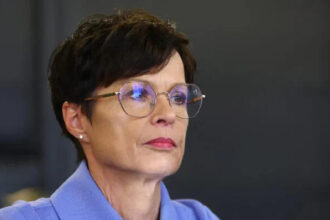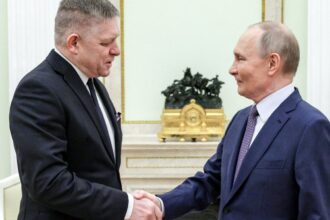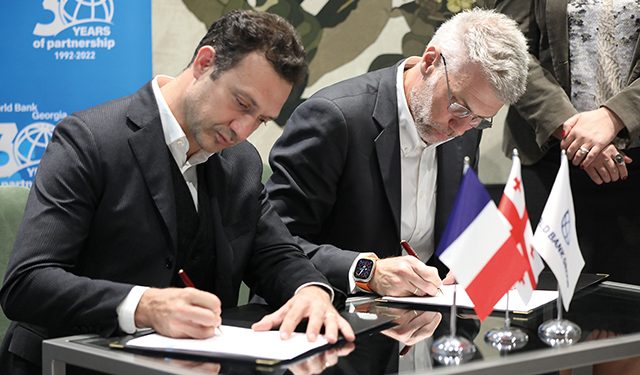Georgia launched its Human Capital Program on October 25 with support from the World Bank and AFD. The program aims to unlock Georgia’s growth potential by investing in health, education, and social protection. This is the largest World Bank loan to Georgia in the past three decades, and the first cross-sectoral operation of the Bank that targets three critical areas of human growth.
The World Bank invested 400 million dollars to support Georgia’s Human Capital Program. Agence francaise d’developpement (AFD), on the other hand, contributed 100 million euros in co-financing. The co-financing contract was signed at a launch event in Tbilisi on Tuesday.
“We are investing, along with the Government of Georgia in the people of Georgia as well as their future. We believe that our joint efforts to strengthen Georgia’s human resources will be a significant boost for the country’s economic and social prosperity,” said Sebastian Molineus. World Bank Regional Director of the South Caucasus. The Human Capital Program, by helping to implement transformative changes in education, health, and social protection will play a vital role in Georgia’s long term development trajectory, and in strengthening its path towards becoming a European Union member.
“This program represents an opportunity to continue the long-standing collaboration between AFD and Georgia’s Government in the areas of social policies and health that has been ongoing since 2016, as well as an opportunity to increase ambition and impact for Georgians, particularly women,” said Raphael Jozan. Director of AFD Office of the South Caucasus. “It’s a demonstration of how climate smart action can be aligned to social policies that are beneficial for both the people and State.” Implementation will require constant consultation with beneficiaries, CSOs and joining forces with others development partners.”
The Human Capital Program is designed to improve the quality and life of all Georgian citizens by improving efficiency, inclusion, connectivity, and accessibility of human development services. This will be achieved through ensuring equal and fair access to high-quality education, better targeted benefits, and strong prevention healthcare with lower costs for treatment and medicine.
Lasha Khutsishvili, Minister of Finance of Georgia, said: “The Government of Georgia considers human capital development as one of its most important priorities and acknowledges that investments are needed to achieve this goal.” Minister of Finance for Georgia “The World Bank is a powerful force in the development of human capital. It is also important to note that Agence francaise d’ developpement (AFD), is willing to contribute to the successful implementation this landmark reform. We believe that by working together, we will create a more empowered human capital that will allow for further progress and productivity growth in Georgia.
The Human Capital Program will improve the skills and abilities of Georgia’s youth and children to better address the increasingly complex issues facing modern society. The Program will support the transformation and improvement of Georgia’s educational system from early childhood to secondary education and beyond. It will also create greater equality and opportunity for the most vulnerable and poorest.
The Program will also increase access to improved healthcare services by supporting telemedicine consults and by strengthening the pharmaceutical management in order to reduce medicine costs, which represent a significant portion of Georgian out-of pocket spending.
The Human Capital Program, which aims to improve the efficiency of social protection, will identify and respond to the needs of poor households with children by expanding access to employment service across the country.
The Program aims to demonstrate Georgia’s commitment towards the global climate agenda by including modules on energy efficiency and climate change in environmental education. It also aims to train teachers and hold workshops on energy efficient and climate resilient schools.
According to the World Bank’s Georgia Human Capital Review (Georgia Human Capital Review), boosting inclusion and quality of human capital is crucial for Georgia to address emerging productivity challenges, including aging and inclusion, and to steer the country towards sustainable, inclusive growth.
To learn more about the World Bank in Georgia, go to http://www.worldbank.org/en/country/georgia or https://www.facebook.com/WorldBankGeorgia.
Read More @ georgiatoday.ge




